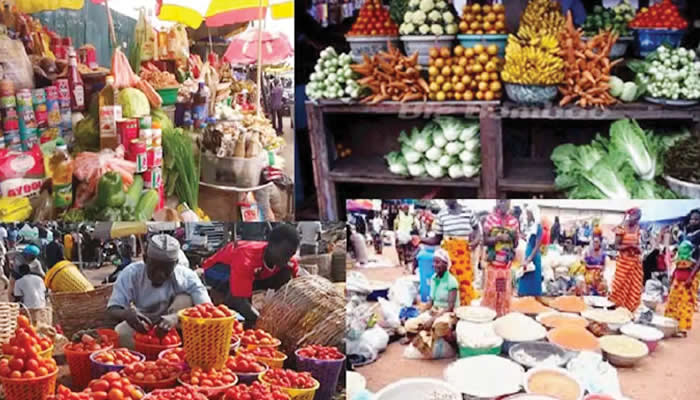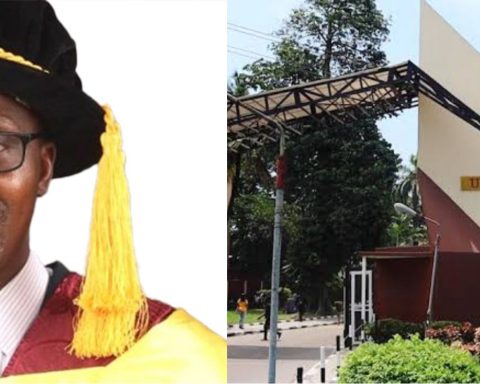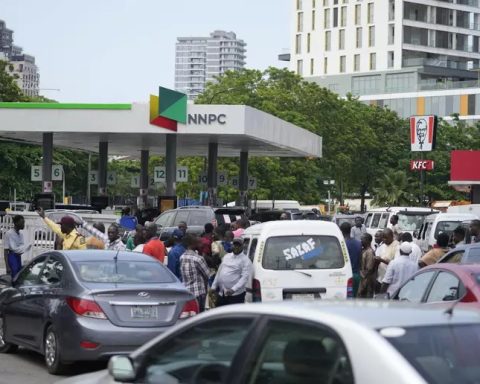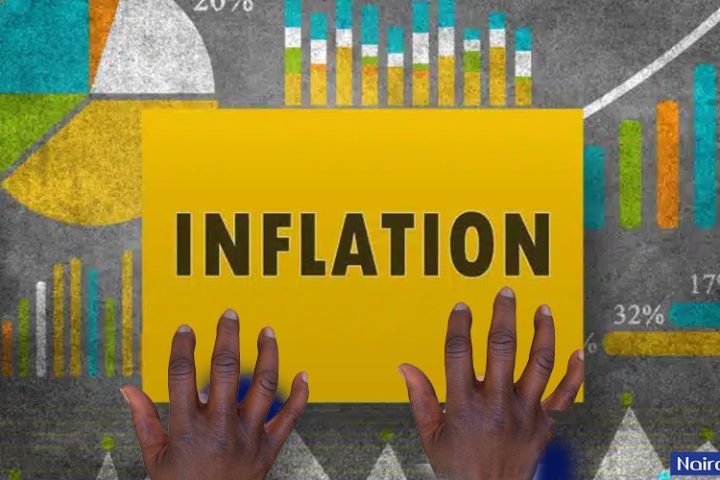To ensure inclusive, impactful and sustainable palliative measures on fuel subsidy removal, there are at least 26 things the Nigerian government must do in the immediate, short and medium term, according to the Centre for the Promotion of Private Enterprise (CPPE).
The CPPE, in a statement made available to Prime Business Africa (PBA), praised the Nigeria Labour Congress (NLC) and the Trade Union Congress (TUC) for opting for dialogue in resolving the impasse triggered by the fuel subsidy removal.
Its Director and CEO, Dr Muda Yusuf, said the pains of fuel subsidy removal on citizens, especially the vulnerable segments of the society, were very severe, but that a strike action would have further exacerbated an already difficult situation. “Opting for strike actions should only be a matter of last resort,” Yusuf said.
Meanwhile, the CPPE urged President Bola Ahmed Tinubu to reciprocate the thoughtful stance of labour by speedily coming up with measures to mitigate the pains of the fuel subsidy removal. The sufferings are real and affecting the citizens across all segments of our society – public service, private sector, informal sector, artisans, students, SMEs, the unemployed, the aged, pensioners, among others.
“There is therefore a need for urgent responsive actions from all tiers of government. The mitigating measures should be holistic and inclusive and should be driven by a combination of direct interventions, fiscal policy measures and monetary policy actions,” the CPPE advised.
READ: Was There Ever Fuel Subsidy In Nigeria?
Join our WhatsApp ChannelNeed For Urgent Reciprocal Action By The Political Leadership
CPPE argues that the citizens have demonstrated an incredible understanding, tolerance, patience and resilience and that the federal government cannot afford to overstretch this gesture and be perceived as taking them for granted.
Reciprocity by the political leadership at all levels is urgent, exigent and crucial. The hardship mitigating measures could be classified into immediate, short term, medium and long term. Such responses would send the right signals to citizens and demonstrate government’s sensitivity to the devastating impact of the subsidy removal on the poor.
In many instances, transportation costs have gone up by between 20 and 50%. For most citizens, transportation is critical to their survival. The hike in transport fares and the corresponding inflationary effect is already posing a threat to the livelihood of many, both within and outside the public sector. Wage earners, small business owners, informal sector operatives, artisans and the unemployed are all very vulnerable in the current circumstances.
This is the context in which the government needs to urgently respond to the current crisis, focusing on the scope of impact, effective targeting, inclusion and the right messaging.
Immediate panaceas need to be activated, not just with respect to transportation costs, but the surging cost of living generally. The agreement signed with labour did not reflect the desired urgency of the mitigation measures. It is also scanty on immediate actions and quick wins which are needed to immediately assuage the feelings of the ordinary citizens and stabilize the social environment.
Meanwhile, beyond the documented demands of the labour unions, the CPPE is recommending the following interventions in the interest of social justice and social stability.
Direct Intervention Measures Recommended
The CPPE suggested direct and other institutional intervention measures by government to include:
- NNPC should sell petroleum products at a price which is 10% less than that of other private sector marketers. This is to demonstrate the desired social sensitivity by the government in this transitional phase of the subsidy removal. It is also of great symbolic significance to do so. Government must be seen to be concerned about the social outcomes of this reform. This is without prejudice to the new status of the NNPC as public Limited Liability Company.
- Acceleration of the Presidential Power Initiative to upscale power supply in the country. State governments and private investors should be supported to leverage the decentralization power supply and off grid power solutions. Quick wins in the power improvement strategy should be implemented immediately. This would reduce the demand for petroleum products [petrol and diesel] for purposes of electricity generation by households and businesses.
- Government must put an end to the pricing of gas in dollars for domestic use, especially for manufacturers. Necessary urgent steps must be taken by government to put an end to this dollarization framework to ensure a moderation in energy cost for the manufacturing sector.
- Government should take urgent steps to reduce the cost of LPG to households. Recent reduction in the LPG price is laudable, but the price reduction trajectory should be sustained to ease pressure on households and prevent deforestation.
Fiscal Policy Measures
- Import duty, VAT and other port charges on Semi Knocked Down parts for the assembly of mass transit buses should be waived. This would not only make mass transit buses cheaper; it would enhance industrial capacity utilization of the vehicle assembly plants in the country.
- Import duty on passenger buses of 15 passenger capacity and above should be reduced by 50% for the next one year.
- Import duty on fairly used cars of engine capacity of 2000cc and below should be reduced by 30%. This would enhance access of the middle class to vehicle ownership in the light of the high deficit in the provision of public transportation.
- Drastic reduction in import duty on intermediate products for food processing industry in the country. The government should engage major food processing companies to determine specific policy options for the realization of this objective. This would moderate food inflation.
- Introduce incentives to stimulate private investment in pipelines. This would sufficiently reduce distribution costs of petroleum products.
- Abolition of all forms of taxes and import duty on renewable energy equipment to boost the adoption of renewable energy by households and SMEs. Such waivers would make renewable energy adoption affordable. This reduction should cover relevant equipment like solar panels, inverters, batteries etc. This would make citizens less reliant on the electricity grid.
- All agricultural inputs – machineries, agrochemicals, fertilizer, etc. should attract zero import duty and zero VAT. This would boost investment in agriculture, especially commercial agriculture. Higher agricultural output would boost food production and ultimately moderate food inflation.
- Generous tax and other fiscal incentives should be provided for private investors in healthcare. This would help to conserve foreign exchange through a reversal of the growing medical tourism in the country.
- Generous tax and other fiscal incentives should be given to private investors in education. This would enable the private sector complement the efforts of government in providing quality education , especially at the primary and secondary levels.
- Generous tax and tariff concessions to incentivize rapid growth in investment in refineries. The outlook for growth in refineries investment is very bright given the elimination of fuel subsidy. This is also in line with the commitment to promoting competition in the petroleum downstream sector.
- Gross monthly salaries of N200,000 and below should be exempted from payment of Personal Income Tax [PAYE]. This will give the low-income earners some room to improve their spending capacity and reduce poverty.
Competition Framework in the Petroleum Products Supply Chain
- Government should immediately entrench competition in the importation and refining of petroleum products. This would put an end to the current monopoly structure of supply of petroleum products in the country.
- NNPC is currently a monopoly supplier of petroleum products which is partly responsible for exploitative pricing of petroleum products – diesel, aviation fuel and petrol. The best strategy to protect consumers in any economy is to create a good and sustainable competition framework.
Private Sector Interventions
- Employers, especially thriving medium and large enterprises, should be persuaded by government to provide buses for their employees, if they are not already doing so. This would complement the intervention of government in this respect. Where possible, employers should provide lunch vouchers for their staff.
- Reduction of the number of days workers would be required to be physically present at work. We need to entrench remote working culture in the public and private sectors, where practicable. Employers should leverage technology in their operations as the nature of work is changing globally.
- The private sector has a responsibility to provide palliatives for their employees. Government should prevail on private sector employers, especially the medium to large enterprises, to complement the efforts of government in the introduction of measures to cushion the negative social effects of the subsidy removal outcomes. It should be a call to give capitalism a human face.
- We should see an upward revision of wages in the private sector to reflect current inflationary pressures. They should provide mass transit buses for their employees; ensure the provision of health insurance and possibly provide lunch vouchers for their low cadre staff.
Foreign Exchange Policy Reform
- Acceleration of reforms in the foreign exchange market, especially the unification of the exchange rate in line with the President’s pronouncement and the ruling party manifesto.
22 This is crucial to create a level playing field in the forex market and pave way for equal access to by all players in the petroleum downstream sector to either import or refine petroleum products. This is essential to drive competition in the industry and protect citizens from exploitation.
Monetary Policy Measures
- Soft loans for small businesses are an important component of the palliatives. The microfinance banks should be incorporated into such a scheme in order to deepen inclusion.
- This would facilitate output growth and job creation in this very important segment of the economy.
Cutting Cost of Governance - The sacrifices of the moment should not be limited to the working class and ordinary citizens. The political leadership at all levels must commit to reduction in the cost of governance.
- Number of political appointees, advisers, salaries and allowances, foreign trips, etc. should be trimmed to reflect the current mood of the nation. In addition to the its symbolic significance, this would support the fiscal consolidation agenda of the government.

















Follow Us